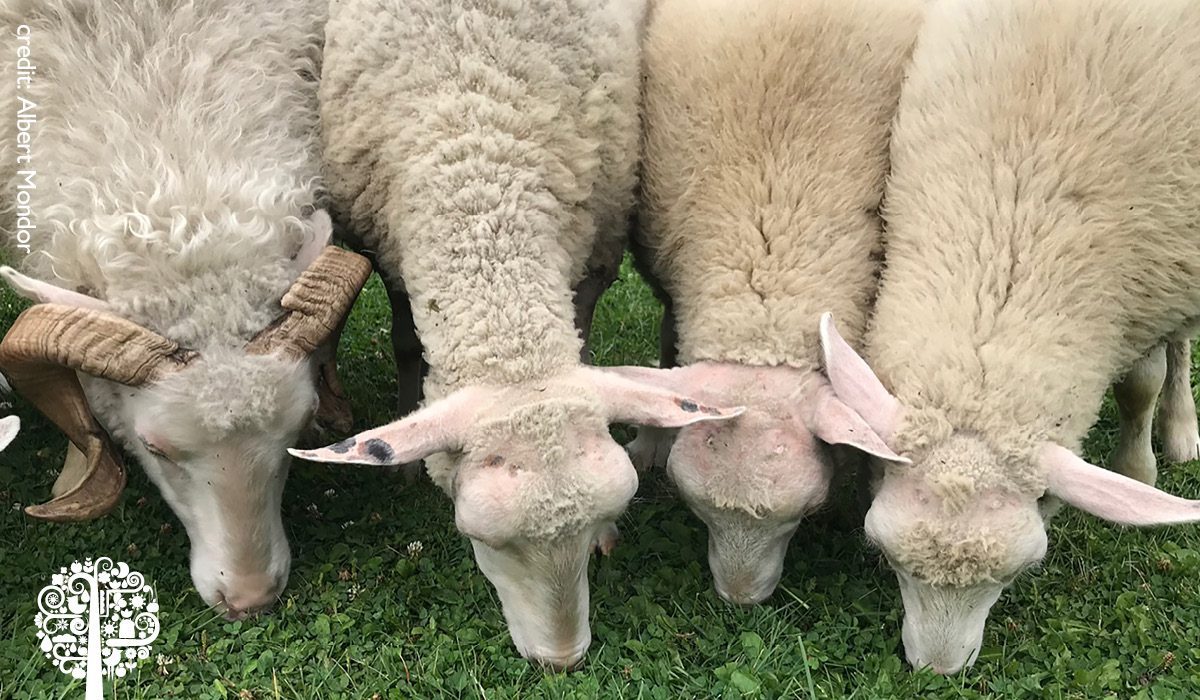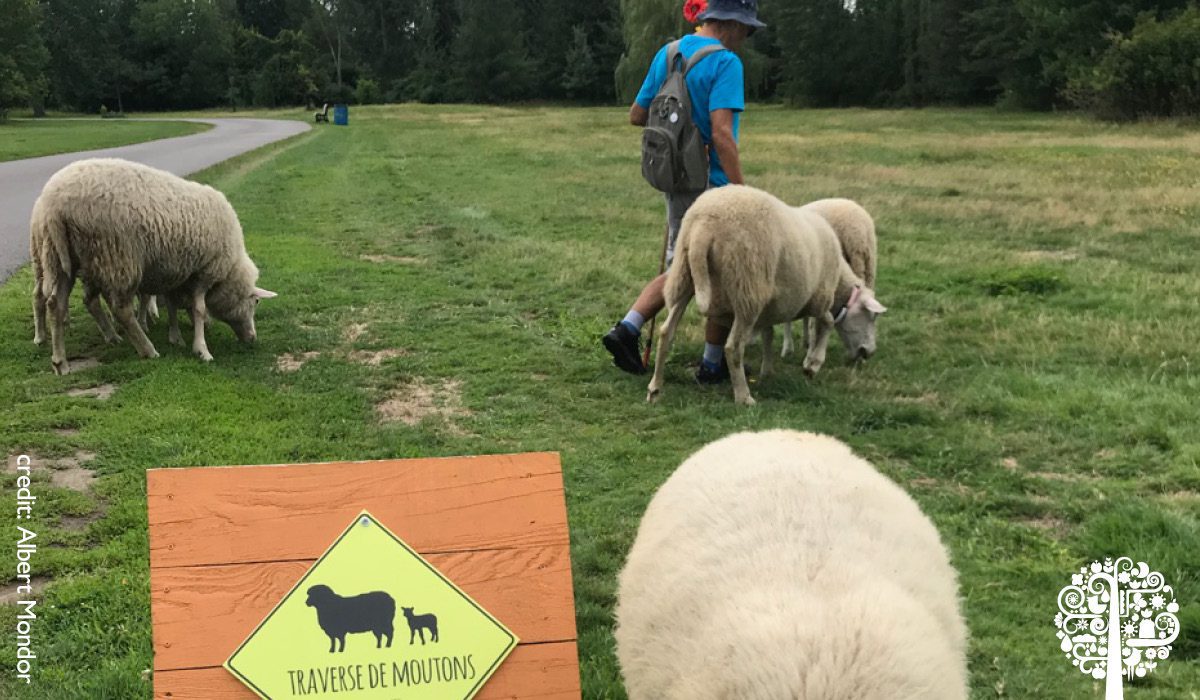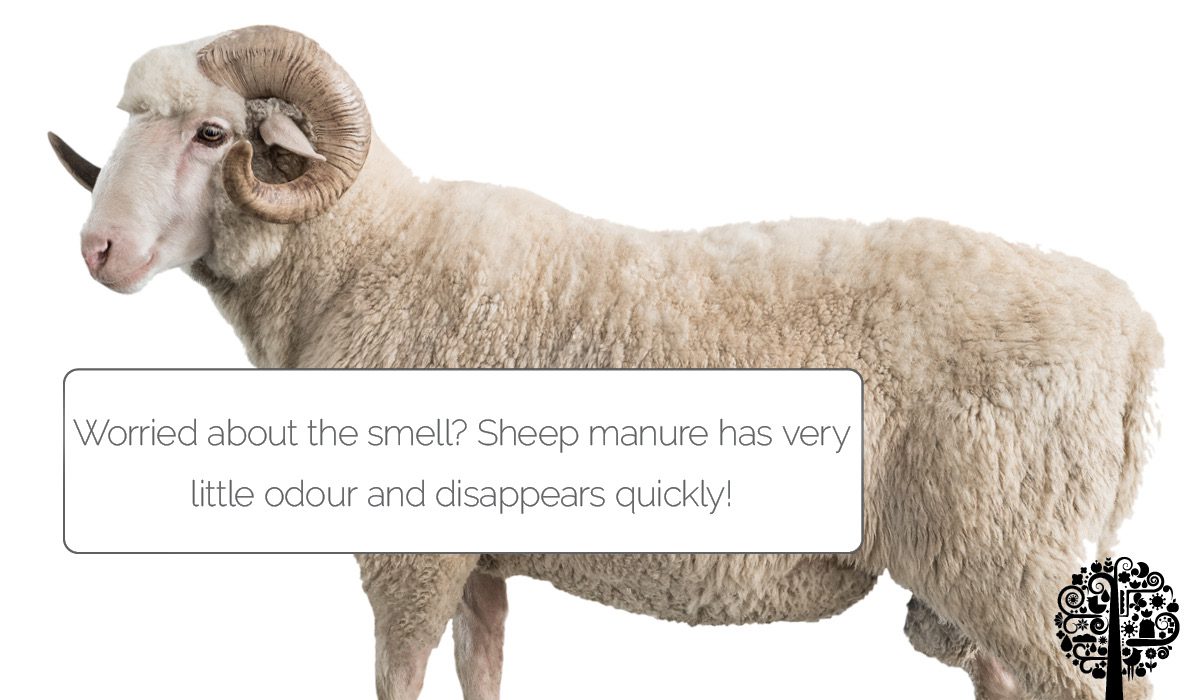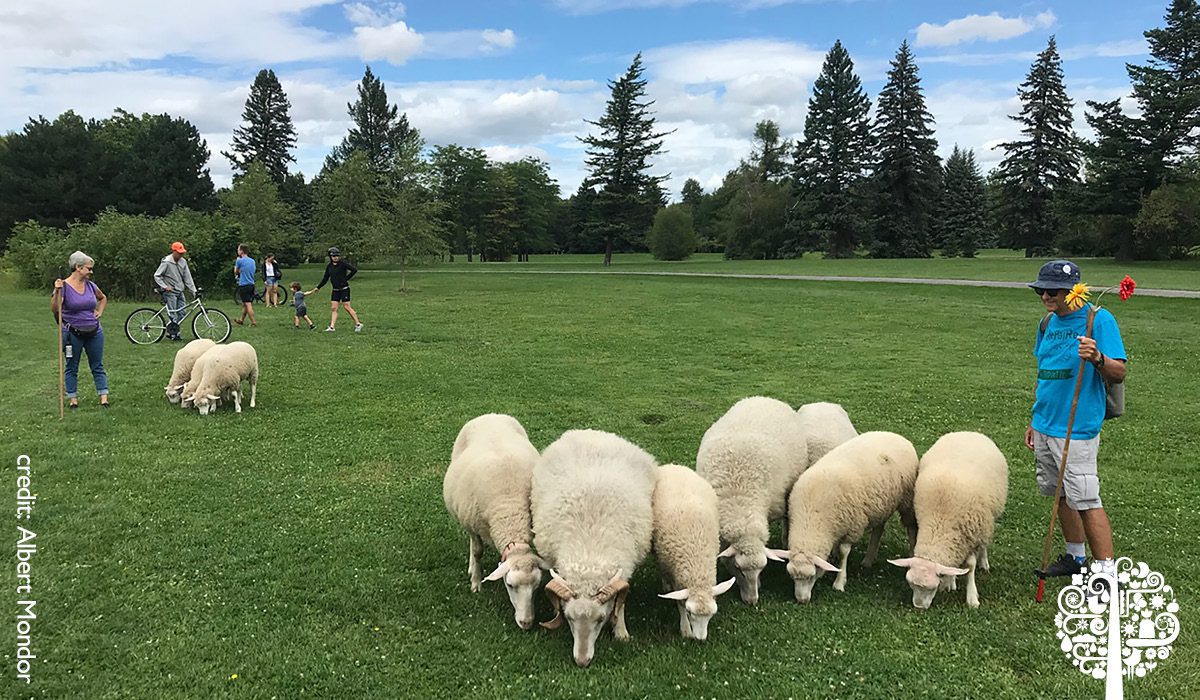Seeing Is Believing: Urban Sheep and Shepherds
Sheep, in the heart of cities? Throughout North America, we now see sheep and their shepherds in parks and other urban areas. Is it just a passing trend or a helpful agricultural practice? What are the real benefits of letting sheep graze on city lawns?

Yvon Langlois, an urban shepherd and his sheep. (credit: Albert Mondor)
Eco-grazing, a Beneficial Technique
Already popular in Europe, sheep are increasingly used to substitute mowing equipment and herbicides in North America. They eat few tree leaves and are therefore used in forests in British Columbia to cut the grass growing around freshly planted young trees. The sheep give the trees a chance to grow while also avoiding glyphosate, a herbicide still widely used in western Canada’s forestry industry.
The owners of some vineyards also opt for eco-grazing. For example, at Vermont’s Shelburne vineyard, sheep graze on weeds growing at the base of the vines without eating the grapes. Since 2016, goats have been used in some parks in Calgary to reduce the proliferation of thistles and other unwanted grasses.

Yvon Langlois, an urban shepherd and his sheep. (credit: Albert Mondor)
Biquette’s Farm was founded seven years ago by Marie-Ève Julien Denis. She observed eco-grazing while on a trip to France and introduced the practice to Montreal, Quebec. Her farm consists of 30 sheep, ten of which live in Maisonneuve Park in the summer, close to the Montreal Botanical Gardens. The animals return to Biquette’s Farm every fall to spend the winter with their fellow sheep.
Natural Lawn Mowers
Sheep feed mainly on dandelions, clover, plantain and some typical lawn grasses. They do not pull up weeds but instead cut them down to the ground, and therefore, they are very efficient lawnmowers! Sheep also control unwanted weeds, weakening them through grazing and preventing them from scattering their seeds. Unlike goats, sheep do not like to eat tree leaves; they prefer to eat plants that grow under a tree’s canopy, such as chervil.

Similar to cows, sheep swallow whole grasses without chewing them. Later, they regurgitate the plants from one of their four stomachs so they can chew them again until they are tender, well-shredded, and ready to be digested.
Nature in the City
I had the chance to meet a flock of urban sheep, and I was amazed to see so many people interested in these animals, which are comfortable around humans. For many city dwellers, especially children, it is a unique experience to be so close to animals without fences or enclosures. Urban sheep offer a particularly beneficial experience and help create a link between humans and nature.
One of the shepherds told me that he once met a cranky man in the park who had just had an awful morning at work. While walking in the park, the man stumbled upon the sheep, and his state of mind changed dramatically, telling the shepherd he suddenly felt calm and happy.

Yvon Langlois, an urban shepherd and his sheep. (credit: Albert Mondor)
Gentle and curious, sheep appreciate and do not fear domestic animals, such as dogs. Worried about the smell? Sheep manure has very little odor and disappears quickly! Their presence in a park is quite beneficial since they mow the lawn, fertilize it, and make people happy.
It’s Hip To Be An Urban Shepherd
In urban settings, shepherds are present more to manage the crowd than to guide the sheep. Sheep have an incredible memory of the territory; they know exactly where to find the best food. Therefore, the shepherds follow them more than they direct them. After grazing for a few hours, the sheep invariably return on their own to the sheepfold to drink water.
Yvon has been a shepherd for Biquette’s Farm for two years. Very diligent, he comes to take care of the sheep three to four times a week. He does this work out of love and passion for these animals. His favorite is Cornoli, the oldest ram in the herd. The sheep recognize him and go out to meet him as soon as he arrives at the farm, mainly to beg for a few hugs!
Another passionate shepherd named Annie tells me that she and some volunteers brush sheep like you would dogs or horses; this removes burrs and other debris caught in the wool.
“I stay all summer here with the plants and animals,” Annie says. “My holidays are spent at Biquette’s Farm!”




